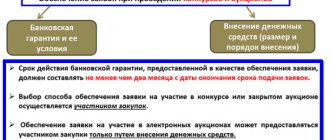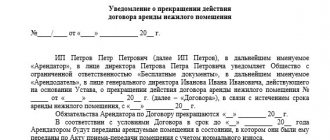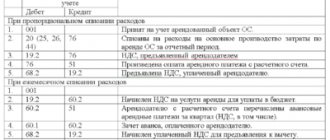Security payment and its regulation
One of the ways to ensure the obligations of a party to civil law relations is the Civil Code (hereinafter referred to as the Civil Code of the Russian Federation) in paragraph 1 of Art.
329 calls security deposit. The direct definition of this concept is given by clause 1 of Art. 381.1 of the Civil Code, according to which a security payment is a sum of money determined by the parties to a transaction, which one of the parties pays to the other as security for any obligation under the transaction. Based on Art. 381.2 of the Civil Code of the Russian Federation, the rules on security payments are equally applied in cases where the subject of security is not cash, but securities (including shares and bonds) or things subject to individualization. In Art. 381.2 of the Civil Code, amendments have been made that come into force on June 1, 2018, according to which the regulation of issues of security payment, the subject of which are securities, can also be carried out by specialized legislation on securities.
In addition, issues relating to the security payment and its return have repeatedly been the subject of proceedings in arbitration courts and the Supreme Court of the Russian Federation. In this regard, it is necessary to consider this topic taking into account court decisions that have entered into legal force.
It is also important to know that the regulation of this method of securing an obligation and its return can be carried out by the parties to the transaction independently. In this case, the participants, by mutual agreement, establish the amount, circumstances under which the payment is non-refundable, the return procedure, etc.
Problems with returning the security deposit under a lease agreement
In contrast to my opinion, there is an opposite point of view developed by judicial practice. REVIEW OF THE PRACTICE OF CONSIDERATION BY FEDERAL ARBITRATION COURTS OF DISTRICT DISPUTES RELATED TO THE INVALIDITY OF TRANSACTIONS (SECOND QUARTER 2011)
"26. The court refused to invalidate the additional agreement to the lease agreement in relation to the security deposit, since the establishment in the agreement of a condition ensuring the fulfillment by the tenant of the agreement and guaranteeing the legitimate interests of the lessor in the execution of this agreement does not contradict the law (Resolution of the Federal Antimonopoly Service of the Ural District dated June 27, 2011 N F09- 3618/11).
Element-Trade LLC filed a claim to invalidate the additional agreement to the lease agreement in relation to the security deposit as not complying with the requirements of the Civil Code of the Russian Federation and limiting the right of the plaintiff as a tenant to early cancellation of the agreement. The court decision partially satisfied the claim, invalidating the 2nd sentence of paragraph. 2 clause 3 of the additional agreement - “in the event of early termination of the lease agreement at the initiative of the tenant, the security deposit payment is not refundable.” The rest of the claim was denied. The Court of Appeal upheld the decision. According to LLC “Trading complex “On Barkhotskaya”, the conclusions of the courts contradict the norms of substantive law. Guided by Art. 421 - 422 of the Civil Code of the Russian Federation, the tenant and the landlord entered into an additional agreement, which provided for the landlord’s right not to return the security deposit in the event of early termination of the contract at the initiative of the tenant. Ch. 23 and 34 of the Civil Code of the Russian Federation do not contain restrictions that would prevent the inclusion of disputed provisions in the contract. The parties proceeded from the fact that the contributed funds are a way to ensure the fulfillment of the tenant’s obligations and can be withheld by the lessor as a penalty, a fine for violating the terms of the contract. The courts incorrectly determined the funds contributed under the agreement solely as collateral. The designation in an agreement of a disputed sum of money as a collateral payment does not mean that it relates to the subject of collateral. There was no collateral agreement between the parties. In his opinion, the courts made an incorrect conclusion that the controversial provisions limit the tenant’s rights to terminate the contract; the lease agreement may not at all provide for the tenant’s right to voluntary unilateral refusal to fulfill the contract, which corresponds to Art. 310 Civil Code of the Russian Federation. According to the plaintiff, the provision on the impossibility of returning the security deposit, limiting the tenant’s right to terminate the contract, in accordance with Art. 168 of the Civil Code of the Russian Federation is void. Since the right of a party to terminate a contract is provided for by the Civil Code of the Russian Federation, it cannot be limited by agreement of the parties. This position is set out in the Resolution of the Presidium of the Supreme Arbitration Court of the Russian Federation dated 09/07/2010 N 2715/10. Element-Trade LLC (tenant) and Trade Complex Na Barkhotskaya LLC (lessor) entered into a lease agreement for non-residential premises dated 01/01/2006. On July 1, 2008, the parties entered into an additional agreement, according to which the tenant agreed to make a security deposit in the amount of RUB 984,201.30. Paragraph 2 clause 3 of the additional agreement stipulates that the security deposit must be returned to the tenant subject to termination of the lease agreement due to its expiration and the tenant does not have arrears on rent or maintenance fees for the leased premises. In the event of early termination of the lease agreement at the initiative of the tenant, the security deposit payment is non-refundable. The courts proceeded from the fact that early termination of a lease agreement on the grounds provided for by law and agreement is the right of the tenant, arising from contractual terms and legal norms governing this type of agreement. Provided in paragraph. 2 clause 3 of the additional agreement, the condition of non-return of the security deposit in the event of early termination of the lease agreement at the initiative of the tenant limits the tenant’s right to terminate the contract and in accordance with Art. 168 of the Civil Code of the Russian Federation is void. The courts also noted that this condition for the non-return of the security deposit in the event of early termination of the lease agreement at the initiative of the tenant contradicts the security nature of the security payment, expressed in securing the fulfillment of obligations, and not in limiting the exercise of the right. The appellate court also pointed out that there were no other legal grounds on the lessor’s side for withholding the disputed amount, since it cannot be qualified as rent, since the property was not used, and cannot be withheld as a civil sanction of a property nature, since There are also no illegal actions on the part of the tenant in this case. By virtue of Art. 309, 310 of the Civil Code of the Russian Federation, obligations must be fulfilled properly in accordance with the terms of the obligation and the requirements of the law, other legal acts, and in the absence of such conditions and requirements - in accordance with business customs or other usually imposed requirements. Unilateral refusal to fulfill an obligation and unilateral change of its terms are not allowed, except in cases provided for by law. Clause 1 Art. 421 of the Civil Code of the Russian Federation provides that citizens and legal entities are free to conclude an agreement. Based on paragraph 1 of Art. 422 of the Civil Code of the Russian Federation, the contract must comply with the rules obligatory for the parties, established by law and other legal acts (imperative norms) in force at the time of its conclusion. According to paragraph 1 of Art. 450 of the Civil Code of the Russian Federation, amendment and termination of the contract are possible by agreement of the parties, unless otherwise provided by the Civil Code of the Russian Federation, other laws or the contract. In accordance with Art. 606, 614 of the Civil Code of the Russian Federation, under a lease agreement (property lease), the lessor (tenant) undertakes to provide the tenant (tenant) with property for a fee for temporary possession and use or for temporary use, and the tenant is obliged to promptly pay fees for the use of property (rent). The procedure, conditions and terms for paying rent are determined by the lease agreement. Art. 620 of the Civil Code of the Russian Federation provides for cases of early termination of the contract at the request of the tenant, and also states that the lease agreement may establish other grounds for early termination of the contract at the request of the tenant in accordance with clause 2 of Art. 450 Civil Code of the Russian Federation. According to clause 3 of the additional agreement, within 10 calendar days from the date of its signing, the tenant makes a security deposit in the amount of RUB 984,201.30. without VAT. In para. 2 of the agreement stipulates that the security deposit must be returned to the tenant provided that the lease agreement is terminated due to its expiration and the tenant does not have arrears on rent or maintenance fees for the leased premises. In the event of early termination of the lease agreement at the initiative of the tenant, the security deposit payment is non-refundable. Based on the terms of the contract and additional agreement, in case of early termination of the contract at the initiative of the tenant, he is liable in the amount of the security deposit. In this case, the disputed amount is not a pledge as such, based on the provisions of Art. 334 - 341 Civil Code of the Russian Federation. Defining it in the agreement as collateral does not mean that it relates to the subject of the collateral. There was no collateral agreement between the parties. The security deposit made by Element-Trade LLC is a guarantee of ensuring the solvency of the tenant and by virtue of Art. 329 of the Civil Code of the Russian Federation may be classified as other methods of securing an obligation, taking into account that the Civil Code of the Russian Federation allows for any methods of securing obligations provided for by law or contract. In this case, it is necessary to take into account Art. 421 of the Civil Code of the Russian Federation, according to which the parties are free to determine the terms of the contract. Citizens and legal entities acquire and exercise civil rights of their own will and in their own interest. They are free to establish their rights and obligations on the basis of the contract and to determine any terms of the contract that do not contradict the law. The parties may enter into an agreement either provided for or not provided for by law or other legal acts. The terms of the agreement are determined at the discretion of the parties, except in cases where the content of the relevant term is provided for by law or other legal acts. Consequently, by virtue of Art. 421 of the Civil Code of the Russian Federation, subjects of civil law enter into civil legal relations of their own free will and in their own interests, guided by the principle of freedom of contract. At the same time, according to Art. 2 of the Civil Code of the Russian Federation, entrepreneurial activity is carried out at your own peril and risk and, accordingly, when entering into civil legal relations, entities must exercise reasonable caution. The establishment in the lease agreement of a condition that ensures the tenant’s performance of the agreement and guarantees the legitimate interests of the lessor in the execution of this agreement, the norms of the current civil legislation, in particular Art. 421, 432 of the Civil Code of the Russian Federation, does not contradict. Therefore, there are no grounds for recognizing paragraph. 2 clause 3 of the additional agreement is invalid (void). The reference to the Resolution of the Presidium of the Supreme Arbitration Court of the Russian Federation dated 09/07/2010 N 2715/10 is untenable, since it addressed the issue of the legality of the agreement on a penalty limiting the customer’s right to terminate the contract for paid services. The Federal Antimonopoly Service of the District overturned the decision of the court of first instance and the Resolution of the appellate instance regarding the invalidation of the 2nd sentence of paragraph. 2 clause 3 of the additional agreement and rejected this part of the claim.”
But I still stand by my opinion.
In what cases can a return be made?
Due to the requirements of paragraph 2 of Art. 381.1 of the Civil Code of the Russian Federation, the return of the security payment is carried out by the party in whose favor it was made, if the circumstances with the occurrence of which the parties to the transaction associated the need for security measures did not actually occur. Thus, if the parties to the agreement stipulated that the security payment is returned to the party that made it within 5 calendar days after full fulfillment of their obligations, the return is made upon full fulfillment of all obligations by the party to the transaction (delivery of goods, performance of work, etc.).
You can find more complete information on the topic in ConsultantPlus. Free trial access to the system for 2 days.
Also, by virtue of this rule, the amount of security is subject to return if the security obligation itself has been terminated. It does not matter how this happened - by agreement of the parties or upon the occurrence of certain circumstances stipulated by the parties in the contract or agreement.
This situation may arise if the parties voluntarily, i.e., on the basis of their will, sign an additional agreement to the contract, which excludes the conditions for this method of security or recognizes them as invalid. Also, the obligation may be terminated due to the fulfillment of the conditions stipulated by the contract (after the first delivery has been made without violating the deadlines, the first payment under the contract has been made on time, etc.).
At the same time, the legal norm in question is dispositive and presupposes the possibility of establishing other grounds and procedures for the return of the security deposit if the parties have agreed on this in writing. Moreover, the parties may additionally provide for cases when one of the parties is obliged to make a partial return of the security deposited in its favor or increase the amount (clause 3 of Article 381.1 of the Civil Code).
Return procedure
Refund rules must be separately stated in the agreement. If the conditions were not violated during execution, then the security payment upon termination of the lease agreement or expiration of its validity period is returned to the tenant (Part 2 of Article 381.1 of the Civil Code of the Russian Federation).
The return procedure is as follows:
- the guarantee is used to pay off the final periods of employment (as payment for the last months);
- The tenant is returned the guarantee in full within the specified period.
If the contract does not establish a return period, the lessor is obliged to return the security within 7 days from the moment the tenant requested such a return (Part 2 of Article 314 of the Civil Code of the Russian Federation).
Letter for return of security deposit (form, contents, sample)
In the absence of a clear procedure for requesting a security payment and its return, the interested party must first send a letter to its counterparty requesting the return of the payment. This document does not have a set form (unless it is established by the contract), therefore it is drawn up in free form.
According to business customs, such a letter should contain the following information:
Subscribe to our newsletter
Yandex.Zen VKontakte Telegram
- the name of the counterparty to the transaction, its individual characteristics and contact details (in accordance with the details specified in the agreement);
- details of the party requesting the return of security for the fulfillment of its obligation;
- details of documents confirming the transfer of a sum of money to the settlement account of the second party to the transaction or the deposit of security in favor of the counterparty in another way (indicating the date of payment, document number, etc.);
- the amount of money to be returned;
- an indication of the obligation to secure which the amount required for return was contributed, as well as details of the agreement within the framework of which it was secured;
- the reasons why the security payment is subject to return (fair performance of the obligation, termination of the security obligation);
- details for return (including in the form of a reference to the details specified in the contract).
Such a letter is drawn up on the organization’s letterhead, certified by the signature of the director of the company or other authorized person, as well as a seal (if necessary and available).
A sample letter for the return of a security deposit can be downloaded from our website. It can be used as a template when creating your own version.
How it is used
The guarantee is usually paid in the form of cash. It is used only in circumstances the occurrence of which is provided for in the lease agreement. If the tenant violates the terms of the lease, the security is counted as the fulfillment of specific contractual obligations (Part 1 of Article 381.1 of the Civil Code of the Russian Federation).
For an employment agreement, such circumstances are:
- Causing damage to the lessor. Options for causing damage are specified separately in the contract. A security payment is used to cover material and intangible losses.
- Failure to pay rent on time. The security covers the amount that the landlord failed to deposit or pay on time.
If the payer has violated the terms of the rental contract, the lessor notifies him of the use of the security. The official notice must indicate the reason for using the guarantee, its amount and support the transaction with documents.
In some cases, the contribution is used as rent for the last months of the lease. This possibility must be provided for in the terms of the lease agreement.
Procedure for returning a security deposit
Termination of the contract or conscientious fulfillment by a party of its obligations under the transaction entails the obligation of the other party to return the amount of money (or securities or other property). In this case, the implementation of the return is subject to a certain procedure, which is ideally determined by the parties in advance and is enshrined in writing in the relevant section of the contract or agreement on ensuring its execution. If the procedure is not defined or the obligated party does not make a return, the interested counterparty must send a letter of return (or a claim, depending on the specifics of the specific situation).
The further procedure is not specified at the legislative level; there is only a certain practice of civil law. After receiving a letter (claim), if there are sufficient grounds, the recipient is obliged to return the security payment within the period specified by the sender, or otherwise, if established by law. The refund is carried out according to the details specified in the letter, or those specified in the contract or agreement on the parties securing their obligations under the contract.
Why are they discussing it?
An additional guarantee in the employment agreement is necessary to cover possible damages. The provision for additional security is included in contracts:
- about renting expensive property;
- on the rental of residential and non-residential premises as a guarantee of payment of monthly rent;
- with a long-term validity period.
The purpose of the security payment is material compensation for damage that may arise during the execution of the lease agreement. The terms of the agreement stipulate the procedure for using the guarantee:
- in case of damage or loss of property;
- failure to pay the monthly rent;
- in case of violation of other essential terms of the lease agreement.
If you include a clause on a security payment in the contract, be sure to indicate its purpose, amount, procedure for making, using and returning such security.
When the security deposit remains with the lessor
The landlord writes off money if the tenant violates the terms of the lease. It turns out that the main thing for the tenant is to carefully read the contract and not violate the obligations.
Here are the most common reasons for losing a security deposit.
Early departure from the premises
If it is written that the deposit remains as a penalty for the tenant’s unilateral refusal of the contract, so it will be. The tenant loses payment even when he didn’t break anything, but simply found a room with better traffic. Entrepreneurs can agree in this way under paragraph 3 of Art. 310 Civil Code of the Russian Federation. The Supreme Court confirmed that this is legal in paragraph 16 of Resolution No. 54.
The landlord may also not return the deposit if he asked the tenant to move out due to his fault. For example, for late rent or a fire in the premises.
However, the landlord is obliged to return the money if he kicks the tenant out. The courts support this, here is an example - case No. A41-85970/2019.
Forgot to return the premises according to the deed
When the lease ends, the tenant is obliged to move out and return the premises according to the deed. Until the act is drawn up, rent is charged for each day, even if the tenant has already removed the furniture and given the keys - Art. 622 of the Civil Code of the Russian Federation. The landlord will write off the debt from the deposit.
Damage to the premises
The tenant repairs a broken door or a broken chandelier at his own expense. It is his responsibility to make routine repairs from Art. 616 of the Civil Code of the Russian Federation. Otherwise, the lessor will record the damage in the return certificate, calculate the amount of repairs and deduct it from the deposit. For the landlord, the deposit is someone else's money, and he is unlikely to look for a cheaper contractor.
But the tenant is only responsible for repairs within the boundaries of his premises. For shared staircases, bathrooms and corridors - no. The owner is obliged to repair and wash the common property in the building - Art. 210 Civil Code of the Russian Federation.








